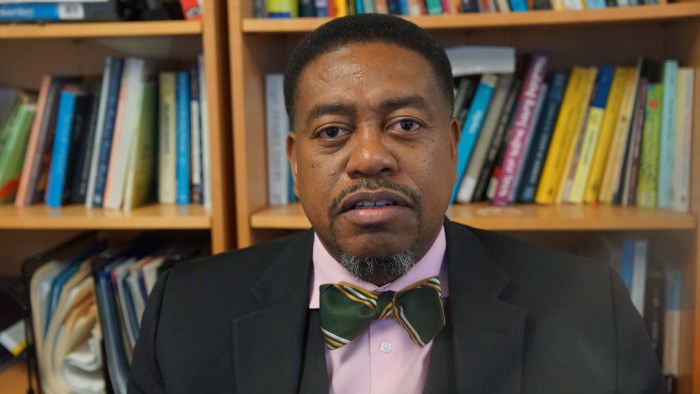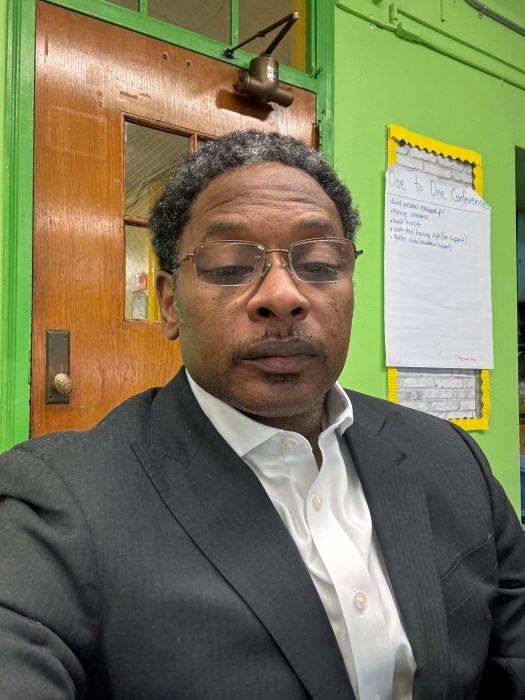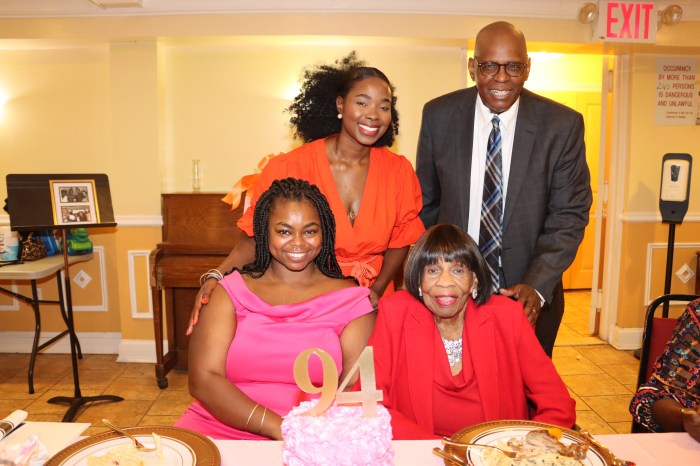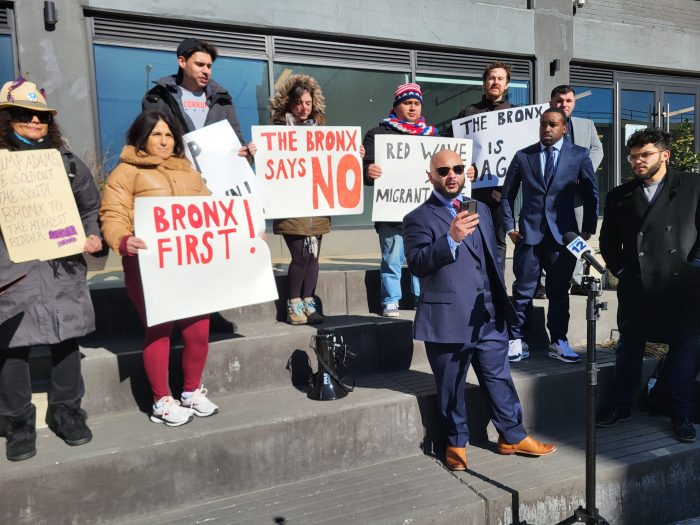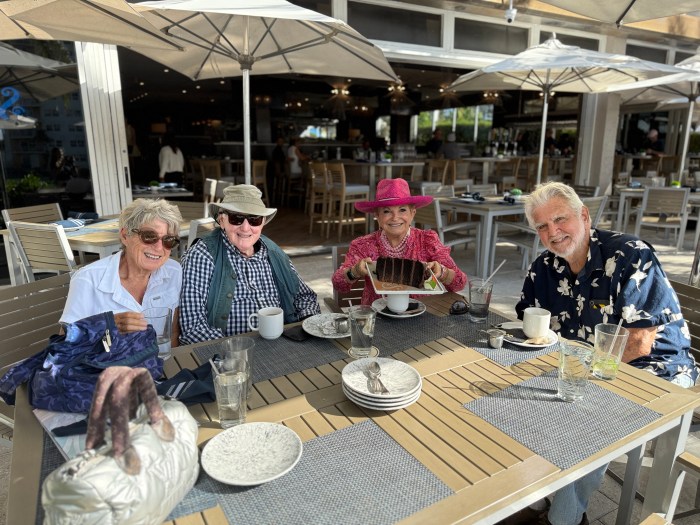Closing the Gender Gap in Science, Technology, Engineering, and Mathematics (STEM) was the topic of an informative conversation last Thursday, held in partnership between Guyanese Tech expert Cloyette Harris-Stoute, UN delegates Chioma Iwuagu Udegbunam PhD, and Dr. Ezinne Kalu on the sidelines of the 79th Session of the United Nations General Assembly.
The forum, hosted at the elegant Waterfall Lounge at 4703 Church Ave. in Brooklyn, focused on Closing the Gender Gap in Science, which has its genesis in the UN 2024 initiative “Women in Science Leadership: A New Era for Sustainability.”
In her opening remarks, Udegbunam, a Nigerian national who earned her doctorate in Public Policy Analysis and who has championed women’s causes through her non-profit, Sure Smiles Women and Children Advocacy Initiative while serving as Chief Executive Officer (CEO) and founder, spoke passionately about women taking on leadership roles in STEM.
“Oftentimes, even in school, we shy away from science subjects because we feel it is too difficult, but as the world evolves, people are now delving into the sciences, including women. The sciences are mapped out for the boys or men, but due to advocacy, interactions, and education, women have been encouraged to pursue careers in this field,” said Udegbunam.
“If women go after Science, Technology, Engineering, and Mathematics, we would be happy for it. We women take care of things, she said noting there was no woman on a construction outside the venue, that she could have engaged on how it feels to be working in a male dominated workplace. You hardly see women in serious construction,” why not, are we that fragile, or is it that our brain is not strong enough to undertake such adventures. Do you believe that if women are taught STEM, it will bring about gender equality?”
“Gender equality means male and female. The man and the woman should be brought to the table to discuss matters. To drive the economy, to rule a country and the world. Women should be given the opportunity to prove their nettle,” argued Udegbunam.
She explained that classrooms are equally occupied by boys and girls, who sit together and receive the same education. Sometimes, the girls outpace the boys in exams. She questioned why women are put in the backseat. “Why can’t we be pushed forward?” she asked.
“If you can take care of your family, carry a pregnancy, and do an office job, there should be equal opportunity for women,” she said and challenged panelists to express views on how to close the gender gap in STEM.
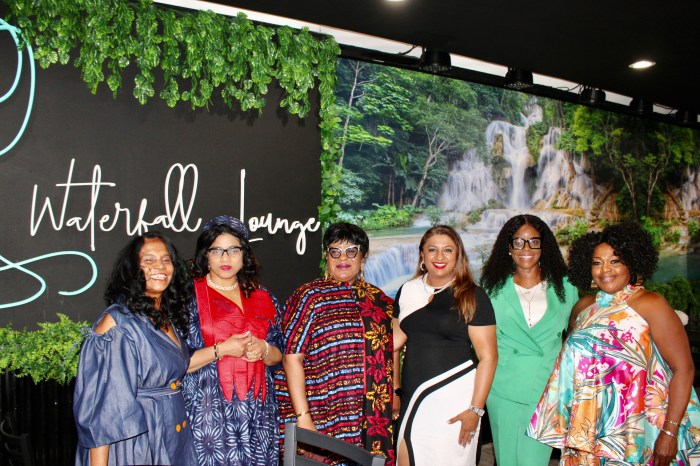
Panelist, Chief Executive Officer (CEO) & Founder at Guyanese Girls Rock Foundation, Inc. and Guyanese Girls Rock, Cloyette Harris-Stoute, a CUNY Master’s educated STEM expert, tech enthusiast, and team mentor, said women have made strides in the STEM field. However, there is still a lot to be done adding that according to a 2023 UNESCO report, women make up only 28% of the global STEM workplace, and in IT, the numbers are lower at 25% for computer jobs.
“Although we have made strides, particularly in the field of sciences, there is still a long way to go, especially in STEM. It isn’t just a women’s issue. Closing the gender gap is a societal issue. When we bring more women into STEM, we gain different perspectives and solutions, adding that technology should be available to everyone, not just one demographic.“
“We are still struggling to get our young women to take on STEM careers,“ she said as a mentor for her foundation. “After high school, they choose leadership roles. Many go into nursing, but there are not many who would join the engineering field. Since we started the program in 2018, we have only granted one technology scholarship from 30 students who were in the program,“ said the expert.
She said the lack of representation is one barrier to bridging the gap. “One of the ways we can inspire young women to pursue a certain career is when we see women that look like us in leadership positions of power. This would inspire women to follow. According to the adage, “you can’t be what you can’t see,“ she said.
“The stereotype that boys are better than math is a myth. Young girls are also great in math, but when they graduate, they pursue a different career. There is a bias, that sometimes begin in the home, perpetrated by parents, by not encouraging girls to seek careers in STEM or embrace technology and mathematics,“ she articulated.
Panelist Dr. Ezinne Kalu, a Nigerian-born scientist, medical doctor, public health specialist, and woman’s advocate who lives in Australia and is the founder of a humanitarian non-profit initiative empowering and advancing women’s future in various endeavors, echoed Harris-Stoute’s views.
She said women have taken a back seat in everything, and “I became passionate to change that. I am a mom and wife. I am raising the next generation of boys and girls. I try to keep it balanced. She noted a huge gender gap in any form of STEM. Women make-up 37% of enrollment in university for STEM courses and only 15% of them go on to do qualified STEM jobs.”
She said a considerable pay gap exists between women and men in STEM in Australia. “We do the same exams, so why are we less than? Only 5 percent of women are in senior management jobs.”
“There is a stereotype about gender-based roles that engineering is a man’s job; that is so incorrect,” she said and pointed to 50 % of women in the US as physicians, the percentage of women in fields of cardiology, neurosurgery, urology, but that is where the gender gap starts to become noticeable. They would rather steer women towards family practice, and pediatrics, things that are described as less than a male thing.
“We must crush those stereotypes, said Dr. Kalu, who explained that gender gaps exist in medicine and STEM professions. Cultural barriers also play a role. “Women are seen to be more of the caregivers of children and family members. They are expected not to be in demanding roles.“
“Any exposure to STEM is essential for young girls to close the gap. Creating inclusive involvement, giving girls access to all games, don’t just give them dolls. Dolls are great but don’t say cars are for boys, and dolls are for girls. Girls want to drive cars too,” she said, adding that stereotypes must be challenged.
She recommends involving boys while promoting positive self-esteem in girls, which will help create equal opportunity and close the gender gap.
“Tell girls you can be anything. You can be the president of the United States; you can be the CEO. Make it clear that they can have those opportunities. They can apply their mind the same way a boy can,” said the scientist.
The day of conversations, followed by a Q&A, was facilitated by Sherif Barker with the input of Lady Ira Lewis, founder of the American Heritage Foundation, Inc., an associate of Chioma Iwuagu Udegbunam Phd., and was applauded for its instructive content, which garnered a high viewership on social media. Proprietress Doris Rodney, in turn, was thanked for generously accommodating the event at Waterfall Lounge.



